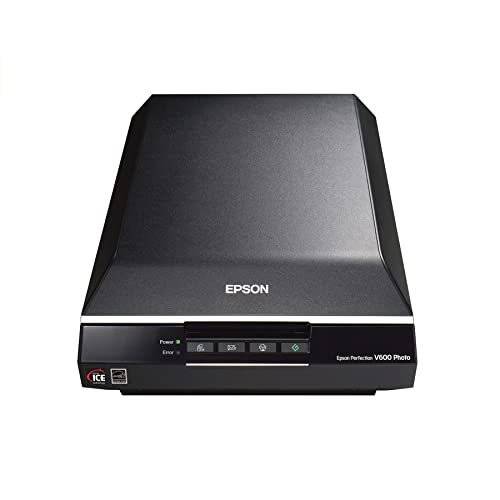Best Scanners For Digitizing Files Of 2024: Completed List
Brandon Forder Apr 19, 2024 11:18 AM
While all-in-one printers have gained in popularity, document scanners still have a position in many conventional and home workplaces. Many have duplex scanning allowing scanning on both sides of a page, as well as high-capacity automatic document feeders to eradicate the need for human scanning. To ensure that scanned documents are easily legible, models from Brother and Epson typically have extensive editing software suites.
These features include the elimination of blank pages, the identification of handwriting, and the correction of any skew in the image. There is no longer any need for a USB cable while scanning documents because nearly all models now support wireless connectivity through Wi-Fi. It is also possible to make off-site copies of digitized documents by transferring them to cloud storage services like Dropbox or Google Drive. Get a machine that can handle a wide range of paper sizes, from standard letters to business cards and receipts, if your workplace processes a wide variety of document kinds. Contractors and cost estimators can benefit greatly from the ability to easily generate digital copies of invoices and payment receipts thanks to the widespread availability of mobile versions of popular brands that are extremely lightweight and small for transport to off-site client meetings. See our recommended scanners for scanning files below.

Compare Products
- SCORE9.0
- BrandEpson
- SCORE8.8
- BrandEpson
- Prime
Last update on 2024-04-19 / Affiliate links / Images, Product Titles, and Product Highlights from Amazon Product Advertising API
Size
The document scanner's dimensions should be your first consideration. Both small and large versions are available.
Most small-sized models are incredibly transportable, however they can often only process a single document at a time. Consequently, a full-sized model is the way to go if productivity is your top priority.
Scanning speed
The speed at which your document scanner scans is one of the most important features to consider. When shopping for a scanner, look for the speed rate (the number of pages it can scan in one minute) listed somewhere in the product description or specifications; this will give you a good sense of how quickly you can digitize your data and photographs.
For instance, if you have a high volume of papers to scan every day, you should look for models that can scan up to 50 pages per minute without a hitch. If speed isn't too important, though, you can get by with a scanner that can scan 20 pages per minute.
Compatibility
In this step, you ensure that the document scanner works flawlessly with your PC. Sadly, most products are only compatible with the most recent releases of Mac OS X and Windows. Make sure you check your operating system version to avoid any confusion.
If you're using Windows, you can determine what version you're running by going to the "Start," menu, right-clicking the "Computer" icon, and choosing "Properties,"
If you're using a Mac instead, open the Apple menu item, select "About This Mac," and look at the Version number beside the Software heading to see what version of macOS you're running.
Functionality
The top document scanners list highlights the variety of available scanners, each with its own set of advantages. A model that can merely scan papers and pictures may be sufficient for your needs. Tests suggest that multifunction scanner-printer-fax machines are the best option for those who need many functions from a single device.
Therefore, you should determine what you need the document scanner for. The cost will change based on the complexity and variety of features included in the gadget being evaluated. Buying a multipurpose device with functions you won't use is, of course, a waste of money.
Resolution
Multiple experiments demonstrate that the resolution and color range of a scanner have an effect on the quality of the scanned image, just as they do with a camera, a mobile phone screen, or a television. Resolution may not be as crucial if you just intend to scan black-and-white documents (such as bills, contracts, notes, etc.). You should pay close attention to the scanner's resolution if you want to scan in vivid color and detail.
Looking at the dpi (dots per inch) figure is the best way to tell if the resolution of a scanner is any good. The resolution of a scanned image, and hence its final visual quality, improves in direct proportion to the dpi value at which it was examined.
How Much Do Document Scanners Generally Cost?
Most customers will base their decision on the whole cost. The price of a document scanner can range from $90 to $800, with the latter range being more common. The size of the scanner, the total scanning speed, and the brand name all play a role in determining the final price.
Why should I scan my documents?
You can never be too safe or secure, which is why modern and old workplaces both benefit from redundancy. Making sure you have digital copies of all of your financial documents, from invoices and receipts to client contracts, can help you avoid making any mistakes in your books and will help you stay organized. Digital papers can be compiled into a searchable database for easy access to historical data such monthly sales reports, customer information, and contracts. And unlike paper documents, digital versions cannot be carelessly discarded with the trash.
How does a document scanner work?
In order to function, a document scanner uses a collection of charge-coupled devices (CCDs) that collect light from mirrors. Next, an analog-to-digital converter converts these signals into a digital representation (ADC). At last, the digitized image or document is sent to the computer (or comparable device).
Which operating system is necessary for scanning?
Scanners for documents are ubiquitous these days, and nearly all of them can be used with either a Mac or a PC. Even so, before buying a scanner, be sure it is compatible with your PC. A scanner that is incompatible with your PC is essentially useless. If you're looking to buy a used or vintage scanner, compatibility should be double checked. Verify its compatibility with the OS on your PC.
Changes in technology occur all the time. Users may get numerous benefits from this, but it may also prove to be somewhat inconvenient at times. To avoid buying models that won't endure, we need to make sure they aren't too old. A good investment will yield results over the long run.
How does OCR work in a document scanner?
Thanks to optical character recognition (OCR), a scanner can now digitally convert printed text into editable digital format. When a device is equipped with optical character recognition software, it can identify written characters based on how they are typically represented. This method allows us to use a text editor to make changes to the scanned document.
Scanning a book or newspaper article, for instance, allows you to make changes to the original in Microsoft Word. Therefore, this function is extremely helpful for those who routinely scan such documents. Not all scanner models come included with optical character recognition (OCR), so if you believe you might benefit from it, you should hunt for one that does.
Unquestionably, technological advancements have been remarkable. The security offered by internal and cloud-based storage solutions is therefore preferred by an increasing number of enterprises. We hope that you are able to choose the best document scanner for your needs with the help of our top picks and individualized buying advice.


























